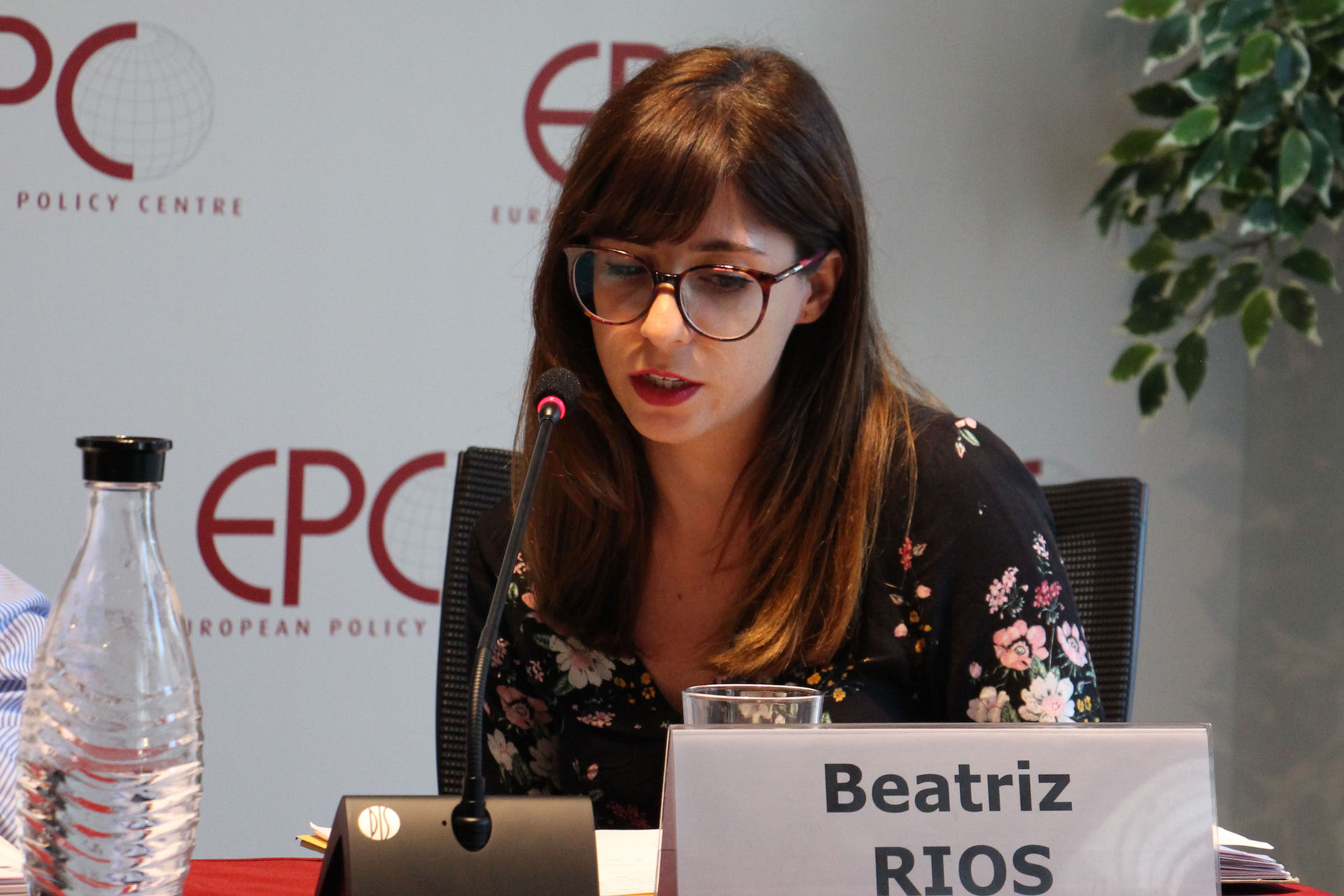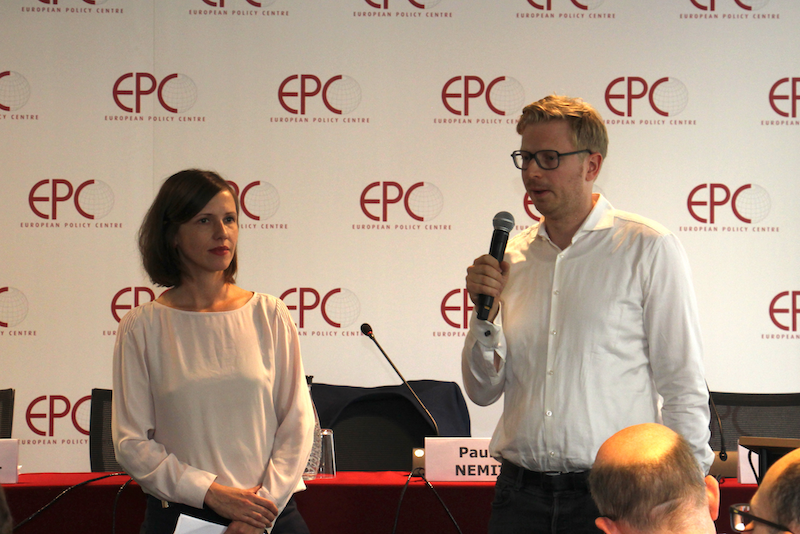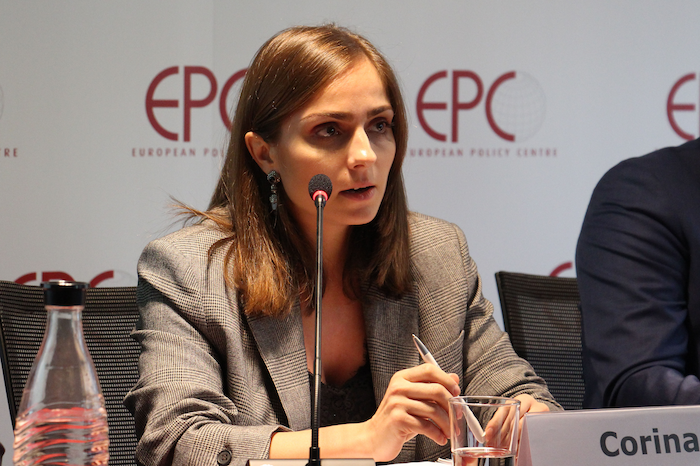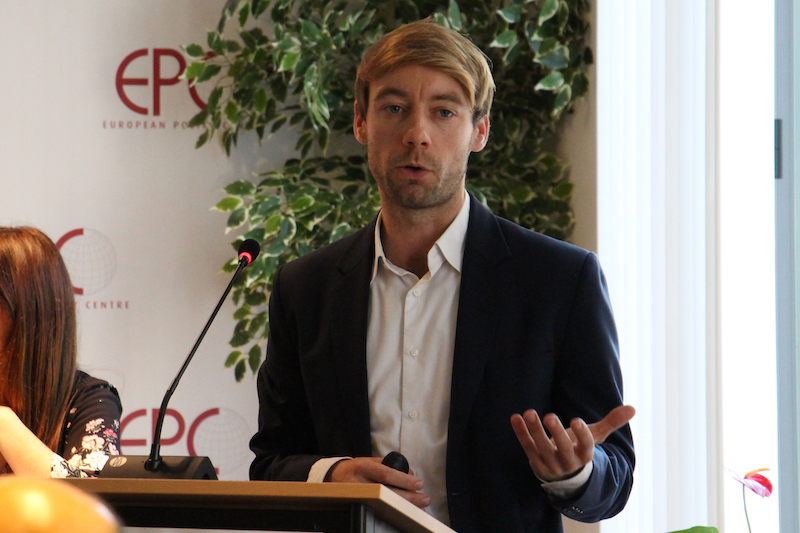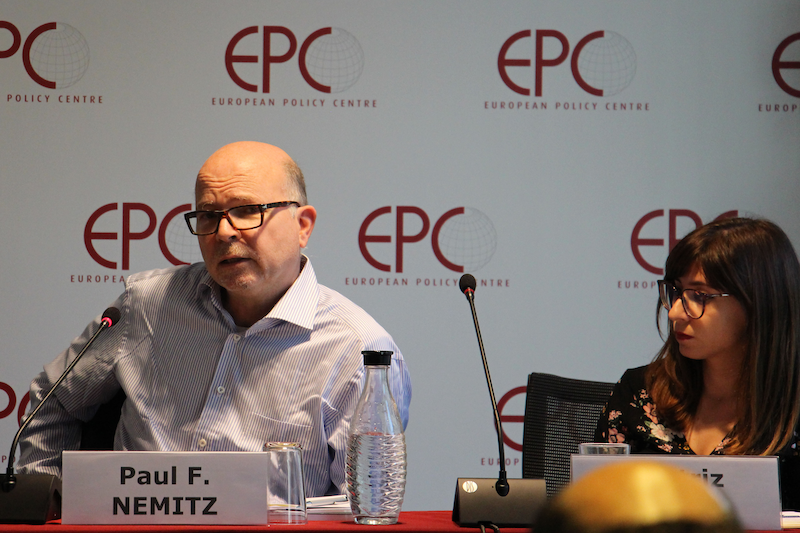For the launch of the English and French versions of its study “Return to the politically abandoned: Conversations in right-wing populist strongholds in Germany and France,” Das Progressive Zentrum met with representatives from the European Policy Centre, the European Commission, as well as members of the media and the interested public in Brussels to discuss the study’s findings. Read the participants’ views and reactions here.
Welcome words were offered by Julian Rappold, Connecting Europe Project Leader, Dominic Schwickert, Executive Director of Das Progressive Zentrum and Claudia Huber, Head of EU programmes at Alfred Herrhausen Gesellschaft.
Introduction by Johannes Hillje, author of the study
Johannes Hillje, Policy Fellow at Das Progressive Zentrum, began by presenting the study “Return to the politically abandoned: Conversations in right-wing populist strongholds in Germany and France.” The study team conducted 500 door-to-door interviews in structurally weak regions in Germany and France that are characterised by a high proportion of right-wing populist voters.
Hillje argued that the disconnect from political parties and poor public services were the main concerns of people living in these disadvantaged areas. He stressed that very few of the respondents reproduced populist narratives making xenophobic, racist or inherently intolerant comments, rather they were concerned by very concrete local problems. They also saw Europe more as part of the solution than part of the problem. Hillje concluded by presenting five policy recommendations for Brussels policymakers:
1) Inner solidarity as a condition for external solidarity;
2) Infrastructure as a means of promoting equal opportunities;
3) Strengthening structures through better presence of pol. parties at the local level;
4) Make structural change compatible with society;
5) Confidence towards right-wing populist narratives.
Reactions from the panelists
In his intervention, Paul Nemitz, Principal Advisor in the Directorate General for Justice and Consumers at the European Commission, responded to the results of the study. He reaffirmed one of the policy recommendations of the study arguing that we cannot expect citizens to show solidarity towards foreigners if they do not receive the same solidarity from state institutions.
However, Nemitz warned against singling out the most disadvantaged in society as the only ones formulating populist ideas. Indeed, the majority of the demagogic leaders pushing populist agendas are highly-educated intellectuals. In order to identify the root causes of populism, one should look for similar patterns across affected countries. For example, he pointed out the challenges traditional media are facing in the light of technological innovations. Challenging the finding of the study that respondents did not pronounce populist narratives of their own accord, Nemitz argued that this did not necessarily mean that they would not support such statements when uttered by populist parties.
Corina Stratulat, Senior Policy Analyst at the European Policy Centre, broadened the focus of the discussion, linking the results of the study to a wider analysis of the populist phenomenon. She encouraged policymaking circles to exercise caution when speaking of the power of populist parties; she stressed that they are still often only the 3rd force in national politics and have so far only ruled as minor coalition partners. The media attention they are receiving is disproportionate to their power and this is worrying because the more attention they are given, the more they set the political agenda. Stratulat underlined that “populists are only as dangerous as traditional parties allow them to be.” She stressed that populism is only a symptom of deficiencies in our political system, and not a problem in itself.
Finally, Beatriz Rios, Reporter at EurActiv, approached the question from a media perspective, arguing that people had been abandoned not only by politics but also by the media. Journalists often wrote stories about people they had never met and which sorely lacked social context. If populists used human stories to bring across their message, then so should mainstream media. At the same time, Rios highlighted that quality journalism is under threat as the rise of social media and social “journalism” has led to an erosion of the important gate-keeper function held by traditional quality journalism.
Input from the audience
The debate was then opened up to the audience for a Q&A session. The debate focused on the question of whether the online information exchange was beneficial or damaging to democracy. “Point and click” democracy of online fora were, for some, very estranged from the traditional forms of representative democracy. It was also felt that too much emphasis was placed on digital debates (which often only regroup around 500 people and thus are not representative).
On the question of whether a social Europe might be the answer to countering populism, the panel argued that people’s socio-economic situation was not a cause of populism per se, rather it could be seen as a trigger. The underlying cause is more likely structural problems in the democratic systems of the country or region.
The importance of shortcomings in local communities came out as a key take-away from the study. This suggested the need for solutions particularly at the local rather than the European level, especially since the EU only has limited competence in social matters and structural funds are mostly dispensed by regions and cities. Lastly, as infrastructure appeared to lie at the heart of people’s dissatisfaction, an idea for concrete action by the European Commission could be to promote the free-WiFi initiative.
Other questions touched upon included:
• Whether the recent electoral successes of the green party across Europe could be seen as a kind of protest vote for a non-traditional party, but one that was progressive rather than populist
• Whether participatory democracy could be a solution to re-engaging with the politically abandoned
• How social democratic parties across Europe could sharpen their agenda to again attract voters in economically-deprived areas
